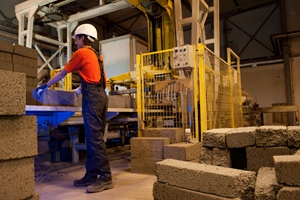- Get link
- X
- Other Apps
One part of history that never fails to anger me is that despite the federal government’s efforts to curb asbestos exposure during the 1970s and 1980s, policies that banned a wide range of asbestos-containing products were short-lived. Thanks to the relentless efforts of industries, a large number of items are still allowed to be manufactured with asbestos in the U.S. Many of these products are made with asbestos cement.
The people who live or work in the structures that were built with asbestos cement aren’t the only ones who need to worry about their health. Over the years, a number of studies have shown that the employees of the actual asbestos cement plants also have to be concerned.
Why does some cement contain asbestos?
For centuries, civilization has used asbestos because it’s strong and resistant to heat, friction and certain chemicals. By the mid-1970s, it was used in the manufacturing of more than 3,000 commercial and industrial products.
For centuries, civilization has used asbestos because it’s strong and resistant to heat, friction and certain chemicals. By the mid-1970s, it was used in the manufacturing of more than 3,000 commercial and industrial products.
In 1989, the federal Environmental Protection Agency tried to enact policies that would have reduced asbestos use in the U.S. by about 94 percent, but two years later, the asbestos industry successfully reversed many of these regulations. As a result, manufacturers are still allowed to use the mineral to create cement products such as pipes, sheets and shingles.
That’s bad news for workers who have to actually make these products. Asbestos is sometimes added to cement mixes because the mineral fibers help keep the material from cracking.
Plant workers are at risk for respiratory diseases
For decades, scientists have been worried about the health of asbestos cement plant workers around the world, including the U.S. In the 1980s, researchers from Louisiana conducted studies on the health of individuals who worked in one of two asbestos cement plants in the state. The scientists discovered that the rates of malignant mesothelioma and lung cancer were higher among people who worked in the one facility that actually manufactured asbestos cement pipes, particularly if they were employed there for more than one year.
For decades, scientists have been worried about the health of asbestos cement plant workers around the world, including the U.S. In the 1980s, researchers from Louisiana conducted studies on the health of individuals who worked in one of two asbestos cement plants in the state. The scientists discovered that the rates of malignant mesothelioma and lung cancer were higher among people who worked in the one facility that actually manufactured asbestos cement pipes, particularly if they were employed there for more than one year.
The workers who enter the plant on a daily basis aren’t the only ones at risk. In Japan, researchers found that the residents who live near these facilities are also in danger, even after they close down. I found one study in the American Journal of Industrial Medicine that estimated that, from 1970 to 2049, between 296 and 382 people who lived around the asbestos cement plant near Amagasaki City will die from mesothelioma caused by exposure to the mineral fibers.
Other studies I’ve read have shown that asbestos exposure has one thing in common with tobacco use: The sooner that exposure stops, the lower the risk for future health problems. One research paper from Italy demonstrated that once asbestos cement plant employees stopped working, their risk of death from lung cancer dropped. Also, the study showed that the odds of these workers developing malignant pleural mesothelioma decreased once the possible latency period for their disease passed 40 years. However, the risk of malignant peritoneal mesothelioma continued to climb.
Personally, I find it rather appalling that companies around the world continue to use asbestos in the face of all the science that shows how dangerous it is. This goes to show you how powerful and influential the asbestos lobby can be.
But no one at Kazan Law is giving up the fight, and neither should you. If you’re as angry as we are, you should contact your lawmakers and tell them to take a stronger stance against the asbestos industry while increasing funding for medical research on asbestos-induced diseases.
In the meantime, workers need to keep themselves educated about their rights to protect themselves from asbestos exposure on the job.

Comments
Post a Comment